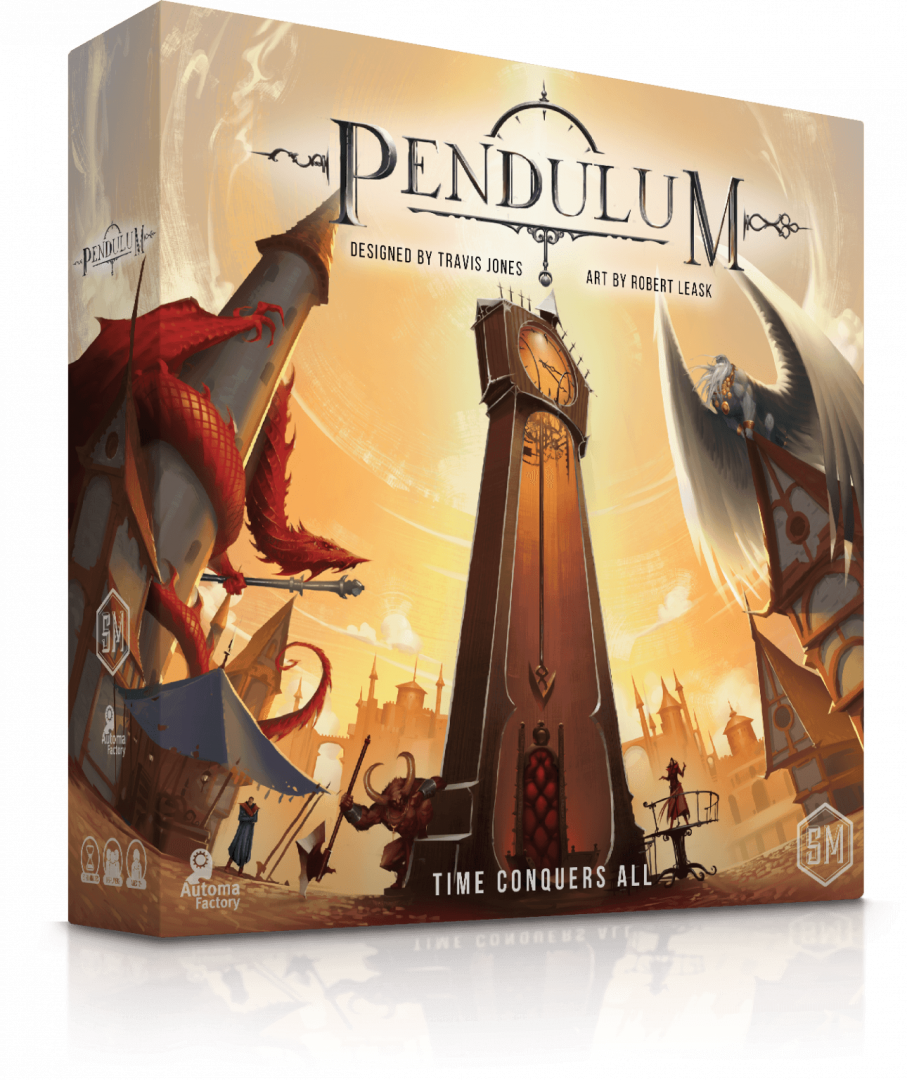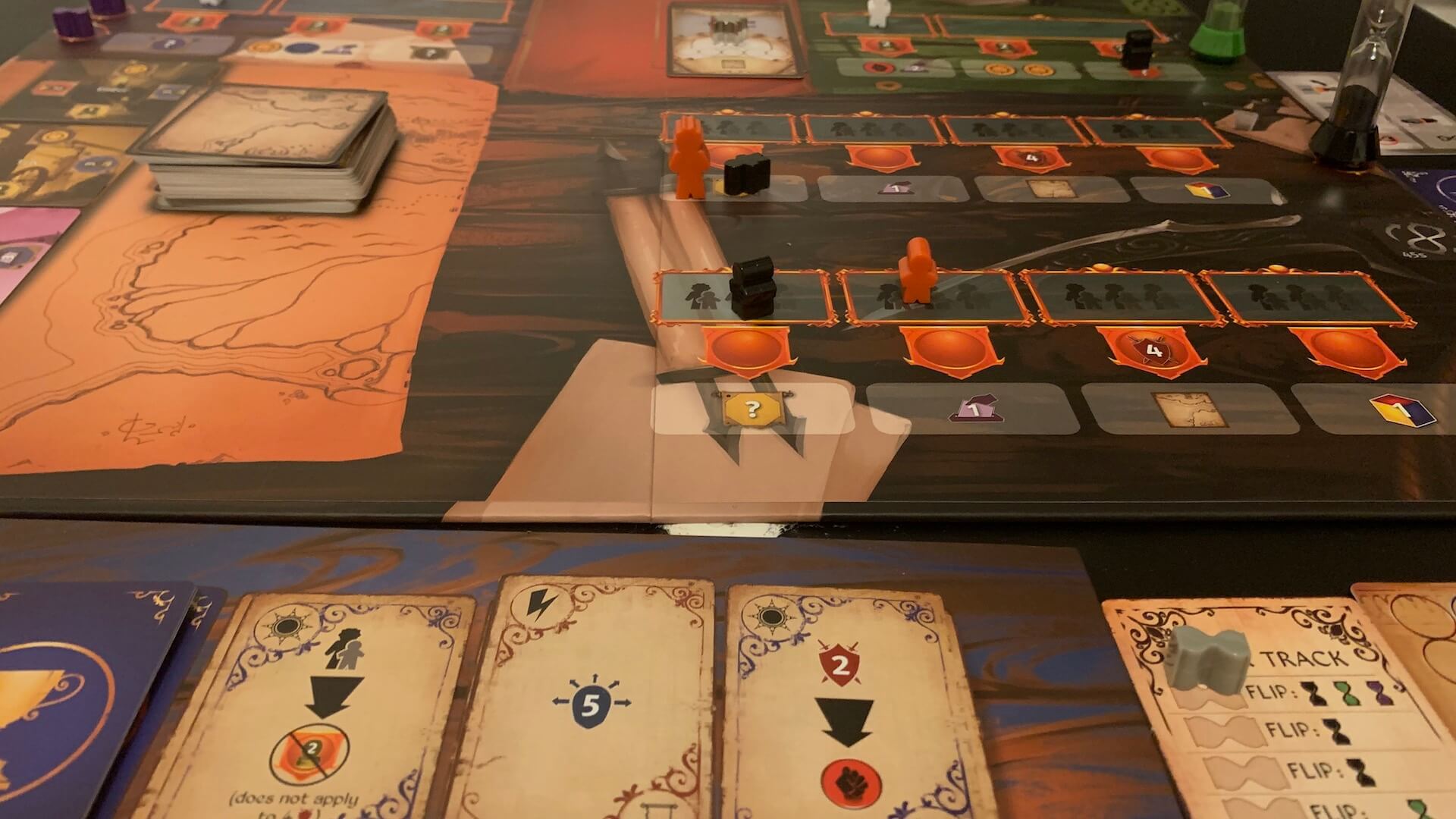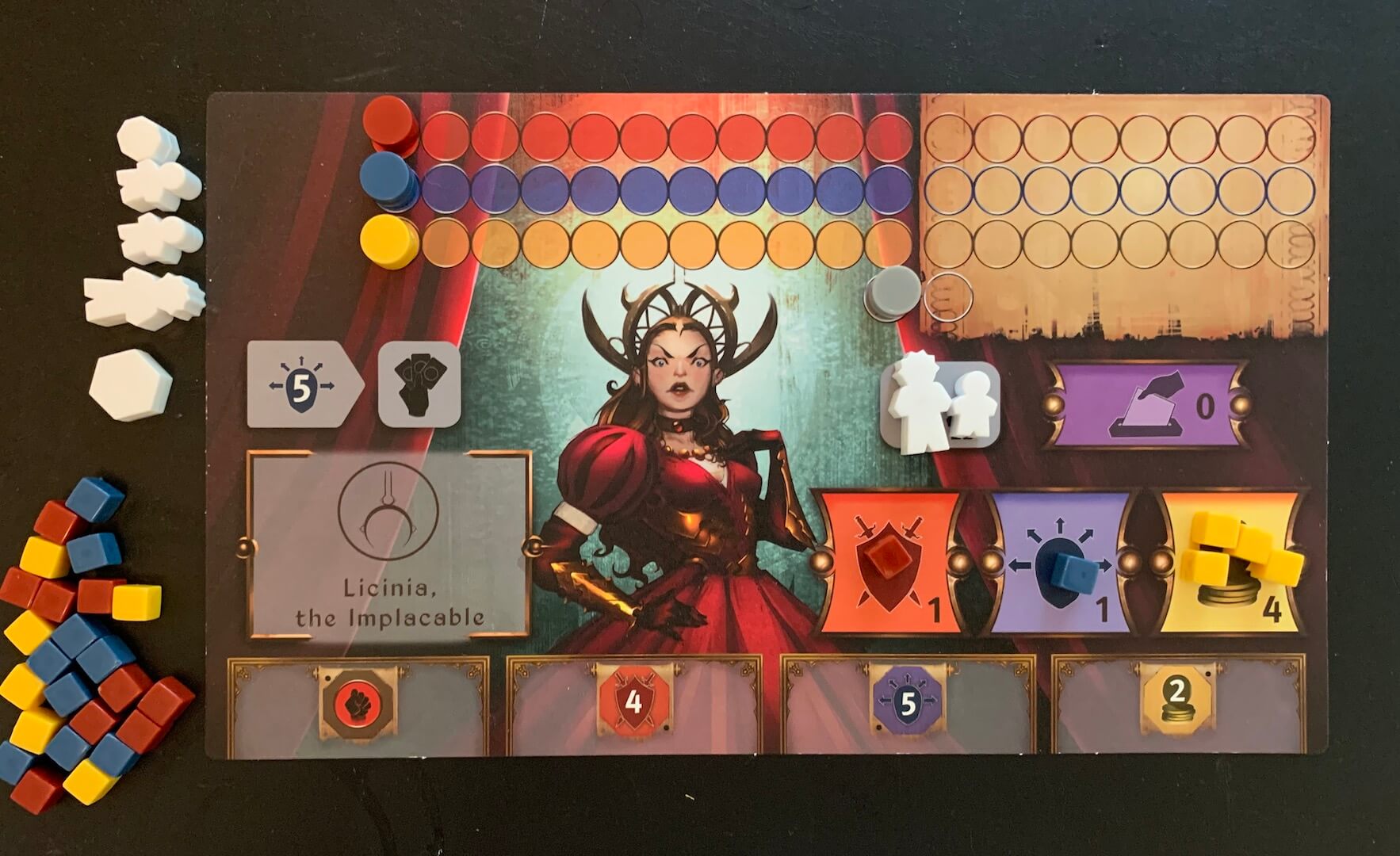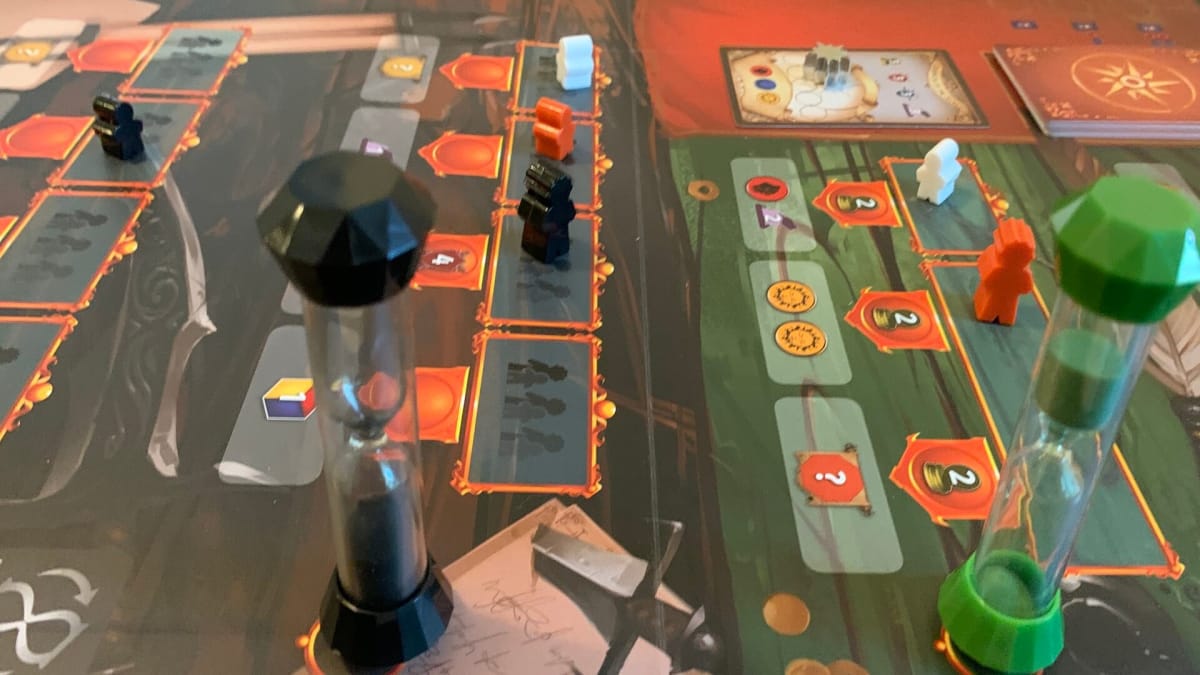The Timeless King, who brought order and stability to the world of Dünya for centuries, has disappeared. In his wake, the great iron clock has come to a stop, and a vicious power vacuum has formed in his absence. But you're a powerful noble, and with the aid of your workers and a strong command of the flowing nature of time, you could just carve out enough influence and support to become the next ruler of the land. But can you get the job done in time? This is the question at the heart of Pendulum, a turnless real-time worker placement strategy game designed by Travis Jones and published by Stonemaier Games.

In Pendulum, 1 to 5 players take on the role of nobles fighting to gain the most influence along 3 victory tracks: Power, Prestige, and Popularity. To do so, players place workers on the board to gain resources, which can then be turned into various benefits that work toward scoring points on those tracks. But what makes this game so special, and stand out from the myriad other worker placement games on the market, is that this game is played in real-time, without specific turns.
The board is, generally speaking, divided into 3 sections where players can place workers: Black, Green, and Purple. And paired with each section is a matching color sand timer, each of varying length. The black sand timer lasts 45 seconds, the green 2 minutes, and the purple 3 minutes. And any player, at any time, can flip a sand timer to another position when the sand runs out. Player actions are limited based on where the timer is (a worker can't be placed on a position with a sand timer on it, and a worker can't take the action of that section when a sand timer isn't present). So the flow of the game is completely dependent upon players flipping those sand timers, taking actions, keeping an eye on all their workers, and navigating the flow of time to create the best strategy they can.

The feel of this game is unlike any other I've ever experienced. It's not, as one might assume on first glance, a race against the clock. Part of the ebb and flow of Pendulum is all about knowing when to move your workers and where to place them to set up sequences of actions that will result in positive gains. But it's not just about flipping the timers as fast as you can, and Pendulum asks its players to spend downtime in between timers ticking down planning further strategies. There's an initial inherent tension built into the game from the timers themselves, but it's a feeling that quickly fades as you realize you've actually got plenty of time to manage your plans. A section in the rulebook titled "Designer's Notes" lays this out well:
Unlike many other real-time games, you'll find there are not many moments where you are trying to beat a buzzer or a countdown. ... There may also be periods where you are waiting for a timer to finish before you can take your next action. Use these times to take a breath.
At times, playing this kind of turnless real-time strategy game can feel a bit like playing a solitaire game while someone else is also using the board. There's little interaction between players, except when you flip a timer someone forgot about and they miss out on an action (which will happen, if you're anything like me, extremely often). But when it comes time to score at the end of each phase, my gaming group found that we had a moment of "catch up" where we talked about what we did that phase, how it worked out, and what went wrong. But trying to keep abreast of what your opponents are doing in the middle of the game is too tall an order, so it's best to stay fairly head down and focus on your play.

Players can choose from 5 different characters, and each one has slightly different victory tracks (some may need to achieve more Power, Prestige, or Popularity than others) and a slightly different hand of 4 cards which can be played anytime for small bonuses. On the back of these player boards are advanced variants, which add quite a bit of nuance and complexity of the game.
As for theme, what I summarized in the opening paragraph is just about all you get for thematic integration, written on the first page of the rules. Because of its worker placement nature, the theme of the game is rather abstracted. You place workers to get yellow, red, and blue cubes, which work to move your yellow, red, and blue discs further along your yellow, red, and blue victory tracks. But the artwork by Robert Leask helps hug the theme a bit closer to the game itself, with evocative character illustrations. Regardless of thematic integration, the graphic design of this game is absolutely fantastic. Read the rules once, or have them taught to you (there's a great How To Play video from Rodney Smith here), and you'll be able to use just the symbols and design on the board for the rest of your play. Like the grains of sand in the timers, everything flows on the board very smoothly.
The Bottom Line:
Pendulum is truly a unique entry in a board gaming market that continues to push out games that more and more feel like clones of one another. The flipping of timers may seem, on paper, like a gimmick ("There are no turns in this game!") is actually so thoroughly wound into the fabric of every action you take that I couldn't imagine playing without it. If you're a fan of worker placement games like Lords of Waterdeep or Viticulture (designed by head of Stonemaier Games, Jamey Stegmaier), you absolutely need to give Pendulum a try. What are you waiting for? Time's ticking.
Pendulum will release worldwide on October 2, 2020 with an MSRP of $60 USD.
Get This Game If:
- You're a fan of worker placement board games
- You like the idea of a turnless board game played in real-time
- You still wear a wristwatch
Avoid This Game If:
- You're looking for a game with a strong thematic story throughout
- You're easily frazzled by timed play
The copy of Pendulum used in this review was provided by Stonemaier Games.
Review Summary
Have a tip, or want to point out something we missed? Leave a Comment or e-mail us at tips@techraptor.net











